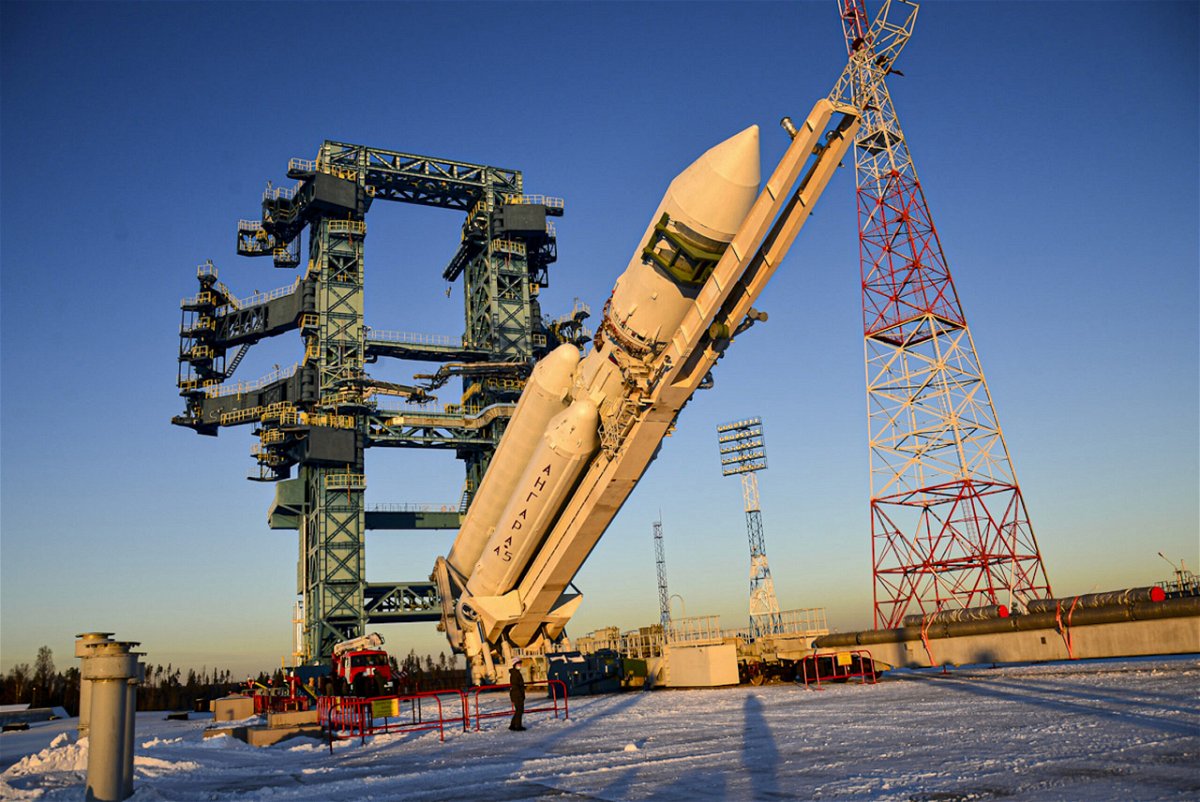Russian rocket stage makes uncontrolled entry into Earth’s atmosphere

Space experts are tracking a Russian rocket part that is set to make an uncontrolled reentry into Earth's atmosphere within the next 24 hours
By Katie Hunt, Kristin Fisher and Jackie Wattles, CNN
An out-of-control Russian rocket stage has re-entered the Earth’s atmosphere, according to the latest estimate from US Space Command, which has been tracking its descent.
The Angara-A5 heavy-lift rocket was launched from the Plesetsk spaceport in Russia’s northwestern Arkhangelsk region on Monday, December 27. The launch was testing a new upper rocket stage, known as the Persei booster, according to the state-run TAS news agency.
Most space debris burns up on reentry to Earth’s atmosphere and poses an extremely minimal risk to humans, but it’s possible that larger parts could cause damage if they landed in inhabited regions.
But on Wednesday, US Space Command — which had tracked the rocket booster during reentry — said the rocket reentered the Earth’s atmosphere at 2:08 pm MST over the Southern Pacific Ocean. That’s 4:08 pm ET.
It may, however, be impossible to determine exactly where the debris landed.
Earlier on Wednesday, the head of the European Space Agency’s Space Debris Office, Holger Krag, said the Russian rocket part had been traveling at 7.5 kilometers per second (4.7 miles per second), and its reentry latitude was likely to be between 63 degrees north and south of the equator.
Risk level
While it was highly unlikely that the rocket would cause damage or hurt anyone, “the risk is real and cannot be ignored,” Krag said.
In May 2021, NASA lambasted China for its failure to “meet responsible standards” after debris from an out-of-control rocket used to launch China’s space station plunged into the Indian Ocean.
The Russian rocket part is thought to be smaller than the Chinese debris, weighing around 4 tons without fuel, compared to around 20 tons for the Chinese Long March 5B rocket, said Krag.
The Chinese Long March rocket was one of the largest objects in recent memory to strike the Earth after falling out of orbit, following a 2018 incident in which a piece of a Chinese space lab broke up over the Pacific Ocean and the 2020 reentry of another Long March 5B rocket.
The Persei booster was about 10 meters (33 feet) long compared to 32-meter (105-foot) Chinese Long March 5B rocket, according to Jonathan McDowell, an astronomer at the Center for Astrophysics – Harvard & Smithsonian. While it weighed less, it was carrying about 16 tons of propellant on board, he said.
The “total mass is about the same as the Chinese stage, but most of it is probably liquid and will burn up in the atmosphere, so the risk to the ground is significantly less. I think,” said McDowell via email.
Original intentions
He added that the Russian rocket stage was not intended to reenter the Earth’s atmosphere in this way.
“It was meant to end up in an orbit where it would stay for many thousands of years. The rocket failed to restart. The Chinese stage reentry was by DESIGN, they deliberately left it in a low orbit,” he said.
Russia’s space agency Roscosmos told CNN the launch was operated by the Russian Ministry of Defence, which did not immediately respond to an emailed request for comment.
Best international practice for spent rocket parts or spacecraft at the end of their life span was typically to make a controlled reentry and fall to Earth in an uninhabited area — usually a remote part of the Pacific Ocean, Krag said.
Krag added that, on average, 100 to 200 tons of space junk reenter the Earth’s atmosphere in an uncontrolled way every year. Only one person is known to have been hit by space junk — a woman named Lottie Williams in Texas in 1997. She was unscathed and lived to tell the tale.
The-CNN-Wire
™ & © 2022 Cable News Network, Inc., a WarnerMedia Company. All rights reserved.